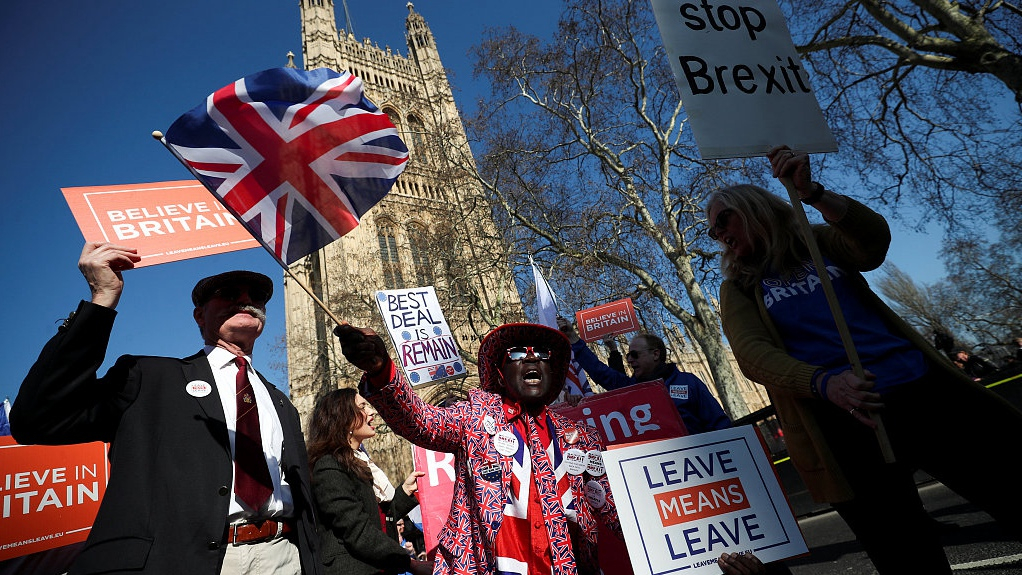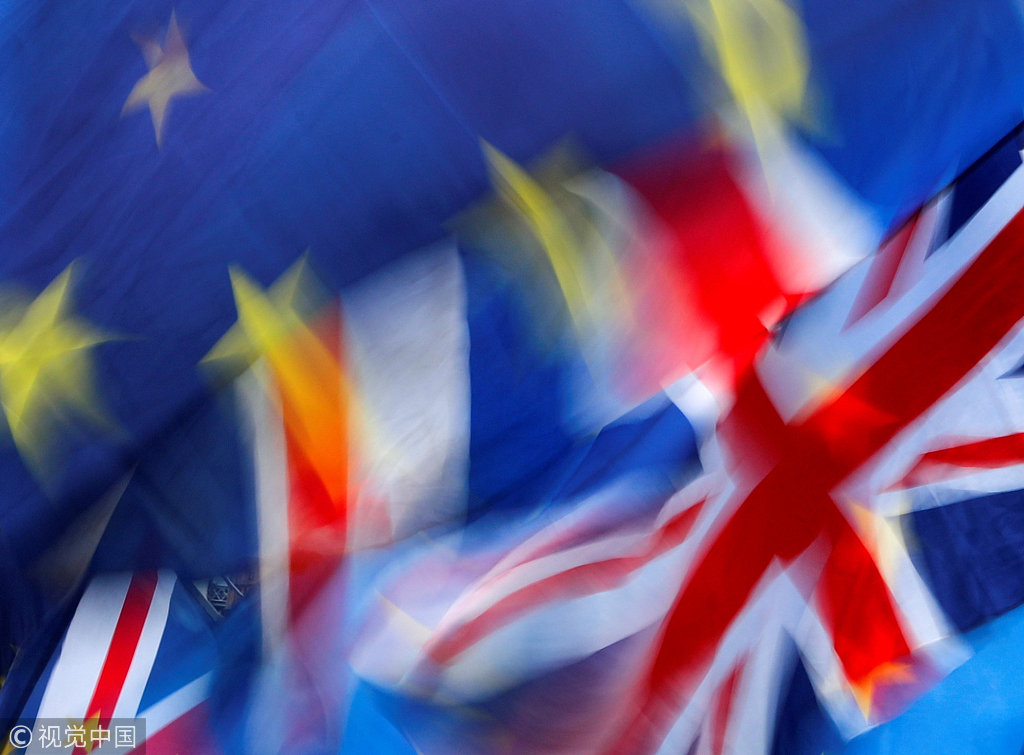
Opinion
12:03, 26-Mar-2019
Theresa May loses control of Brexit
Tom Fowdy

Editor's note: Tom Fowdy graduated with an Msc. in Chinese Studies from Oxford University after majoring in Politics at Durham University. He has published a number of pieces on the international relations of China and the Democratic People's Republic of Korea.The article reflects the author's views, and not necessarily those of CGTN.
Last night saw another hammer blow to British Prime Minister Theresa May as the House of Commons voted to take control of the the lower house's business pertaining to Brexit, defeating the government's position by 329 votes to 302. The vote means that Parliament will now be able to engage in a series of votes whereby they can select what kind of Brexit they prefer, strengthening their hand against the Prime Minister in pushing for what could be a softer form of departure and thus a closer relationship with Europe.
The Prime Minister responded to the outcome by stating there is “no guarantee she will abide by their position.” However, this marks yet another denial of reality on May's behalf. Whilst these upcoming votes are at best symbolic, as Europe is not obligated to listen to them, they are a clear indicator that at this point the UK government has lost all authority, credibility and leadership over the process of Brexit amongst its own citizens.
In every case, the overwhelming sentiment is that if Britain is to move forward in any way or form, the status quo in relation to the government and Brexit as a whole must change. For most people, that means an end to Theresa's Premiership.
How significant are the upcoming votes related to Brexit? The constitutional basis of it is blurred. Parliament by default has legislative power over the United Kingdom as a whole, but there are several powers by which the government can reserve for itself without initial legislative approval.

British and EU flags flutter outside the Houses of Parliament during a pro-Brexit and anti-Brexit demonstration, ahead of a vote on Prime Minister Theresa May's Brexit deal, in London, Britain, January 15, 2019. /VCG Photo
British and EU flags flutter outside the Houses of Parliament during a pro-Brexit and anti-Brexit demonstration, ahead of a vote on Prime Minister Theresa May's Brexit deal, in London, Britain, January 15, 2019. /VCG Photo
Derived from the traditional powers of the monarch, this is known as “royal prerogative.” Typically, such powers continue to apply to foreign policy related areas. Although in each instance the House of Commons holds the final and deliberative say on big decisions such as war, peace and of course the decision to even activate Article 50 itself, the Prime Minister still has de-facto privilege to negotiate nuances with foreign leaders. Theresa May thus reserved the privilege of negotiating the “deal” on her own standing with Europe largely irrespective to Parliament, even if the latter would have the final say and, of course, reject it.
As a result, by enacting a series of votes on Britain's Brexit position, the House of Commons cannot by default change what Theresa May asks or negotiates with the European Union as the April 12 deadline looms.
However, it does have an indirect and thus significant influence, amplified by May's lack of a majority and inability to control the rebels. Thus, the fact that the Prime Minister cannot command the House of Commons, or for that matter all of her own party, to follow her Brexit wishes means that she is suffering from a de-facto loss of authority. As has been said multiple times, her negotiated deal is dead and it is useless trying to pursue it again. The facts are clear: she has lost control of Brexit.
Therefore, even though she can still negotiate exclusively, because Parliament is simply unwilling to consider her position, means now that she has to consider a compromise, giving the commons a bigger hand and “shadow” role. She says that she “may not consider” whatever outcome they propose, but the bigger and more pressing question is, will Europe?
That is where things get sticky. Parliament's motions on Wednesday could end up proposing solutions that Brussels find even more unreasonable, and of course not bound by any extent to listen to. So the problem becomes an even greater tangling of the Brexit deadlock. Europe wants Theresa May's deal, Parliament doesn't and Europe is not bound to consider any alternatives proposed indirectly by the commons. She is caught between the currents and can no longer dictate the flow.
So what can be done? The answer is an immediate change to the status quo. It is now being recommended by a growing number of voices that Theresa May concedes something big. That being her own resignation, a general election, or a second referendum.
If Parliament cannot agree with the Prime Minister, then something must take place which thus binds either of the two to a new commitment. That being a new government, with a stronger majority in parliament, who are willing to extend Article 50 and thus reset negotiations, or for that matter a new public mandate via referendum to either double down on the Theresa May deal, or simply scrap Brexit altogether. Without such, nothing is going to change.
But in summary, Theresa May's days are surely numbered; her Brexit has already long passed away. The Commons cannot change Britain's Brexit negotiating position, but they can hammer another coffin into her Brexit position and compel her to reconsider the political status quo. For the good of the country, something has to change. If not, then worrying times are ahead.
(If you want to contribute and have specific expertise, please contact us at opinions@cgtn.com)

SITEMAP
Copyright © 2018 CGTN. Beijing ICP prepared NO.16065310-3
Copyright © 2018 CGTN. Beijing ICP prepared NO.16065310-3